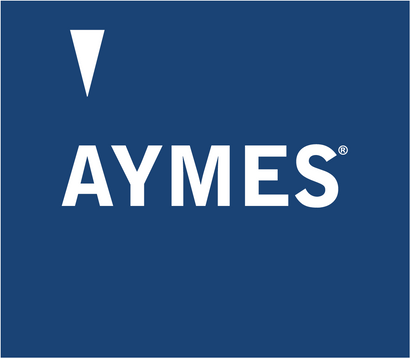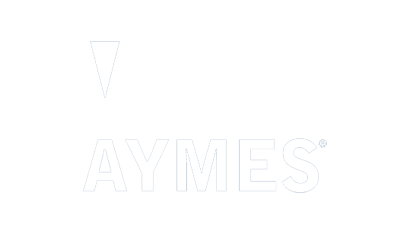What is soy?
The soybean or soya bean is an edible legume native to East Asia. Soy is considered a complete protein as it contains all 9 essential amino acids. Alongside their protein content, soy is rich in B vitamins, fibre, potassium and magnesium.
Soy foods can be classified as fermented and unfermented. When soy is fermented it is cultured with bacteria, yeast or mould.
Unfermented: soy milk, tofu, soybeans, edamame
Fermented: miso, natto, tempeh, soy sauce
Why are there concerns about soy intake and cancers?
The reason there is controversy around soy and cancer comes from its high isoflavone content. Isoflavones are a type of phytoestrogen (plant oestrogen), which has a similar function to human oestrogen with much weaker effects. Soy isoflavones can bind to oestrogen receptors in the body. The concern is that oestrogen can promote the development, growth and spread of some cancers; therefore eating or drinking soy is going to be harmful. The main two cancer types believed to be related to soy intake are breast and prostate cancer.
Breast Cancer and Soy intake
Breast cancers are classified into hormone type: hormone positive (ER+/PR+), or hormone negative (ER-/PR-) breast cancer. The type of cancer will alter how those tumours respond to hormones. Oestrogen receptor positive (ER+) cancers, oestrogen can help the breast cancer progress, similarly with progesterone receptor positive (PR+).1 With these cancer types; hormone therapy is likely to be given to help minimise risk of recurrence, slow the speed of cancer growth or reduce the size of the tumour. It is these hormone positive cancer tumour types that have gathered more attention regarding the concerns around eating soy, however research has been conducted on all types of breast cancer.
Phytoestrogens do not always mimic oestrogen, in fact in some people they may block the action of oestrogen, and if this occurs within the breast then eating soy, in theory, could reduce the risk of breast cancer.
At present, the research does not provide a clear answer to whether eating soy reduces risk of breast cancer. It appears that the variations seen may be due to menopausal status, age at which soy in consumed and type of breast cancer. Conversely, when looking at animal and cell studies, high doses of isoflavones or soy protein extracts stimulate breast cancer growth.2,3
At present in the UK, the estimated lifetime risk of being diagnosed with breast cancer is 1 in 7 (15%) for females born after 1960 in the UK, this incidence rate varies across the world.4

Figure 1. Female breast cancer incidence and mortality rates, 2018.5
Asian countries have lower incidence rates than in America and Europe. It has been proposed that the reason for this is due to varying soy intake. One study suggests that there may be ethnic differences in levels of biomarkers for breast cancer risk, but there is little evidence that Asian women respond to soy foods differently to non-Asian women.6
There have been some large and well-designed studies looking into this.
The largest and most detailed of these is The Shanghai Women’s Health Study. This study followed 73,233 Chinese women for 7 years (1996-2000). Women who ate soy had a 59% lower risk of premenopausal breast cancer. Risk was 43% lower when soy was eaten during adolescence. No significant association was found for postmenopausal breast cancer.7 A follow up study with the same cohort of women suggested that hormonal status, menopausal status and time window of soy exposure are important factors.8
Key findings of the study include:
- 22% lower risk of breast cancer when comparing the highest to lowest intakes of soy during adulthood.
- 28% lower risk of ER+/PR+ breast cancer in postmenopausal women. A 54% lower risk of ER-/PR- breast cancer in premenopausal women.
- A 47% lower risk of premenopausal breast cancer when comparing high to low intakes of soy during adolescence and adulthood.8
There are several prospective studies which all looked at slightly different outcomes and parameters but propose positive benefits of soy. The Breast Cancer Family Registry followed 6,235 women diagnosed with breast cancer living in USA and Canada for 9 years, they found that women who ate the highest amounts of soy isoflavones had a 21% lower risk of death compared with women with the lowest intakes.9 Another prospective study found that recurrence was lower with increasing isoflavone intake among ER+/PR+ tumours, but not ER-/PR-.10 A meta-analysis of prospective cohort studies found a 12% reduction in breast cancer deaths with each 5g per day increase in soy protein intake.11
A systematic review of randomised controlled trials (RCTs) found no changes in breast cancer risk factors with isoflavone intake, however the authors acknowledged that there were limitations to the studies included in this review.12
Prostate cancer and soy
The incidence of prostate cancer is highest in Western countries and lowest in Asian countries. It is thought that the increased consumption of soy foods in Asian countries may contribute to this lower incidence.
A systematic review and meta-analysis found that there is a statistically significant association between soy consumption and decreased prostate cancer risk. However, this association was only when looking at unfermented soy food, soy isoflavones, specifically genistein and daidzein and total soy food. Despite these results, the authors encourage further studies to support using soy as a prophylactic dietary approach to reduce rates of prostate cancer.13
A recent pilot study revealed no response in circulating levels of prostate specific antigen (PSA) with 20g soy protein versus a casein placebo. This was only a 6-month study with 17 subjects, so far too small and short to draw any firm conclusions.14 However their results do correspond with other clinical studies that reviewed PSA changes. One bonus of the study was a modest reduction in serum total cholesterol.
To conclude, it is difficult to draw firm conclusions as a lot of these studies used different types of soy e.g., whole food, fermented, unfermented, isoflavone supplements, soy protein. Therefore, it is difficult to make a blanket statement. However the vast majority of human studies have found benefits to eating soy regardless of tumour type rather than recommending to avoid.
The advice to give to your patients
There are studies that show soy promotes ER+ breast cancer, however these are in cells and animals. It is worth noting that rodents metabolise isoflavones differently to humans. These findings have not been replicated in human studies.
In fact, soy may be protective for cancer as it can bind to the oestrogen receptors in cells and block them, potentially acting as a tumour suppressor.
If you have already been diagnosed or survived treatment, there is no increased risk of consuming soy foods. There may even be a decreased recurrence in women who have a moderate amount of soy with ER+ cancer. Soy intake in males with prostate cancer has made no effect in progression of prostate cancer (when looking at PSA level).
At present we would recommend taking soy foods, rather than supplements. With the current research it is difficult to recommend specific doses. Therefore, moderate soy intake via food and drink is the current recommendation.
Including soy in your diet may have added benefits to heart health by helping to lower cholesterol and potential to decrease blood pressure in people with hypertension.15,16
Summary
Further research is definitely required to establish if there is an optimal amount of soy we should be including in our diet, and the best way to take this, either via whole foods, soy protein, isoflavone supplements. Recent research has indicated that increasing intake of soy was significantly associated with a lower risk of overall cancer incidence.17 At present we should reassure our patients that it is safe to eat soy regardless of cancer type and recommend to eat soy foods and drinks rather than supplements until further research is done.
Author bio
Rachel White is a registered clinical and sports dietitian who works part-time in the NHS as a specialist oncology dietitian. She has over 6 years of experience as a dietitian in different areas including oncology, intensive care, weight management and care of the elderly. Outside of the NHS she runs her own business, Rachel White Nutrition, providing specialist support to athletes to optimise their sporting performance through nutrition.



